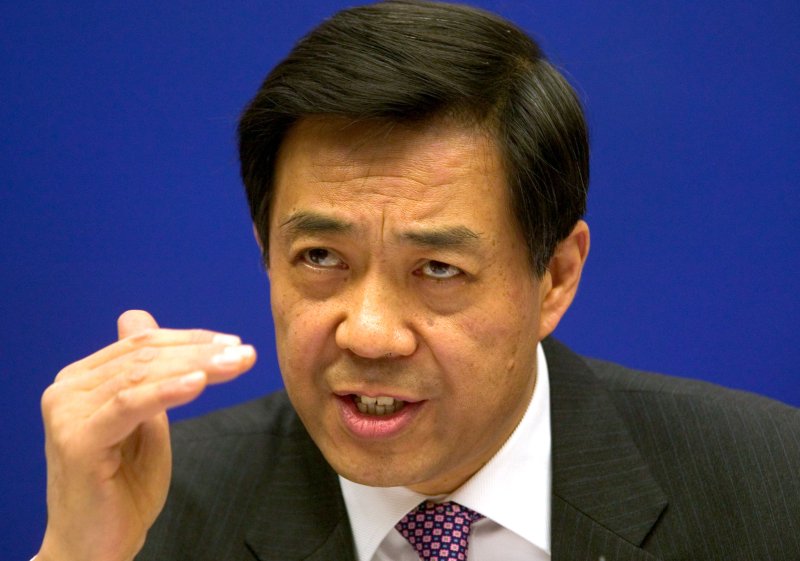Bo Xilai answers questions regarding intellectual property right protection at a press conference at the State Council in Beijing on April 11, 2006. (UPI Photo/Stephen Shaver) |
License Photo
WASHINGTON, April 18 (UPI) -- The American Consulate in Chengdu, China, sheltered a whistle-blower in the Bo Xilai scandal for 36 hours and helped him evade arrest, The New York Times says.
The newspaper reported Wednesday that Wang Lijun, vice mayor and Communist Party chief of Chongqing, brought evidence against Bo, his former mentor, and Bo's wife Gu Kailai, to the consulate Feb. 6 and sought asylum.
The State Department shielded Wang from almost certain arrest by a police force loyal to Bo that surrounded the consulate, and ensured Wang could make his accusations of corruption formally in Beijing. Those charges brought down Bo, led to the investigation of his wife's alleged involvement in the death of a British businessman and involved the United States and Britain in a major Chinese leadership scandal, the newspaper said.
While Wang's request for asylum was not granted, the consulate protected him from police, the Times said.
"He was not tossed out," a senior American administration official said.
Wang is currently in Chinese custody, and under investigation for divulging internal Chinese secrets to the Americans, a possible treasonous crime punishable by death, the newspaper said.
With the U.S. involvement in the episode threatening to strain U.S.-China relations, officials at the embassy in Beijing, the State Department and the White House are not talking publicly about the matter, the Times said.
"It would be incredibly foolish for the U.S. to play any public cards in this very messy Chinese family feud," said Orville Schell, director of the Center on U.S.-China Relations at the Asia Society. "The U.S. and China urgently need to get along, and if there is one thing the Chinese are neuralgic about, it is when their private affairs get aired before foreigners in an embarrassing way.""
Rep. Ileana Ros-Lehtinen, R-Fla., chairwoman of the House Committee on Foreign Affairs, wrote to Secretary of State Hillary Clinton in February demanding access to all cables, e-mails and memos related to the case. The State Department has not yet complied, the Times said.















